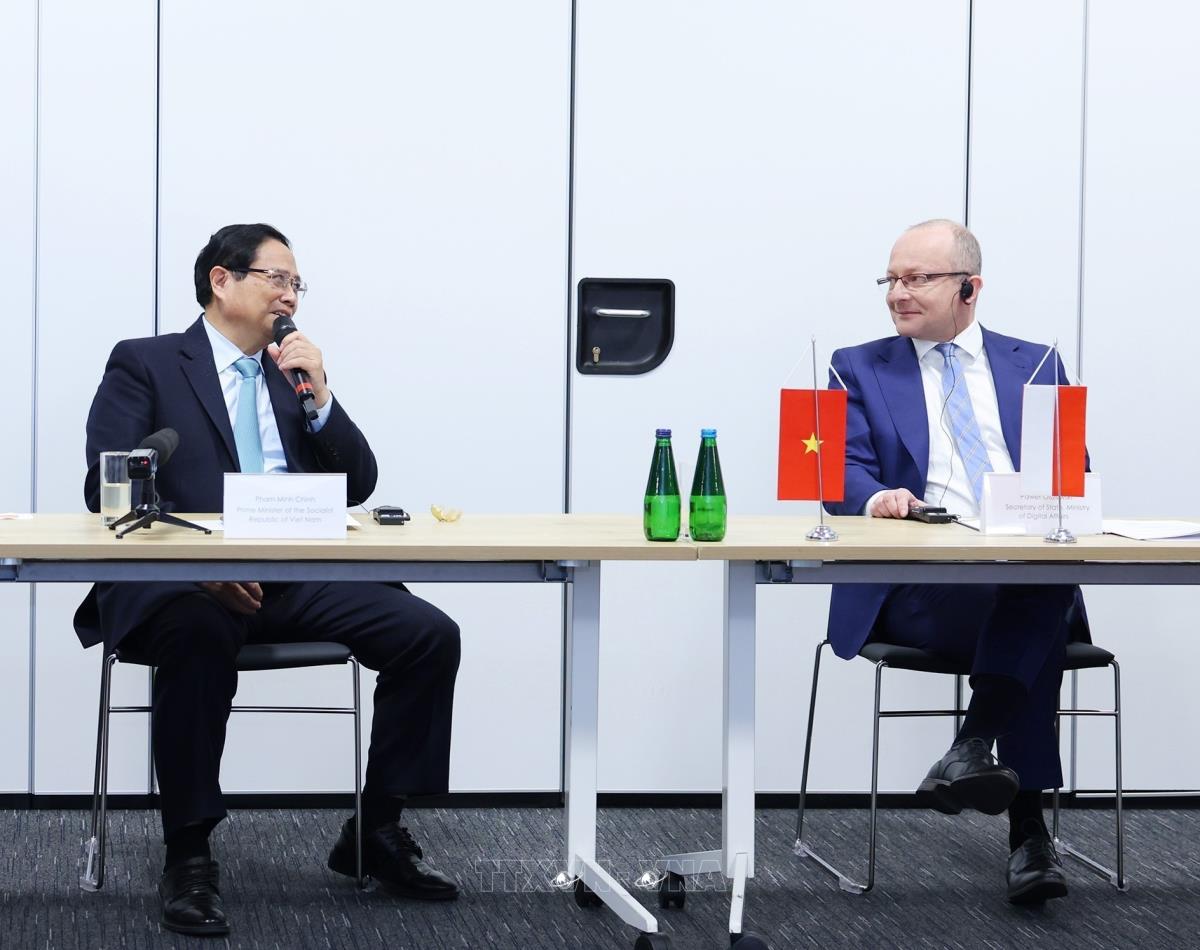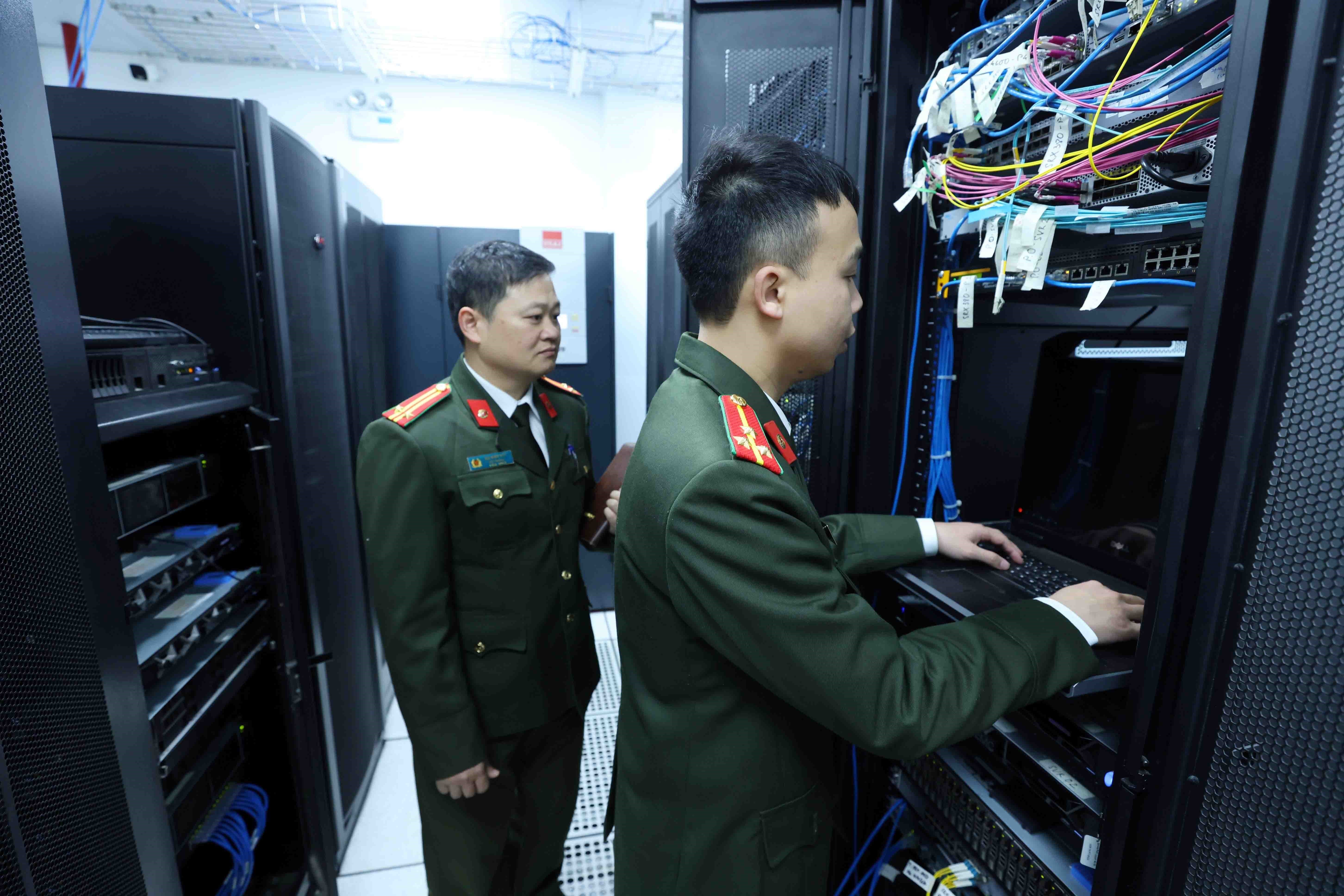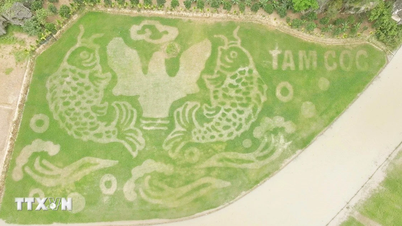
The impacts of the new era on legal thinking in our country
The new era is an era of remarkable development of science and technology, gradually blurring the boundaries between the physical, digital and biological fields. Social relations are also gradually changing with the emergence of new relationships: between humans and robots, between robots and robots - this relationship is becoming more and more popular in life. The new context requires innovations in legal thinking in general, and cyber security law in particular, thereby building a cyber security legal system in line with the development trend of society. This legal system both ensures the requirements of state management and encourages creativity, liberates all productive forces, and opens up all resources for development. On the other hand, the legal system needs to be suitable for practice, effectively and promptly resolve practical problems, be highly predictive, proactively detect and remove "bottlenecks" in development. In the new era, the construction of the legal system in general and the law on cyber security in particular is being affected by many factors:
Firstly, the change in space and time of subjects in legal relations. In today's society, "borderless" and even "subjectless" transactions are increasingly common. The implementation of communication and advertising activities; commercial behaviors and activities, civil transactions... are no longer limited to the territory of a country or a common legal entity (1) . Therefore, legal regulations with previous conventions on space and time have many shortcomings, requiring innovation to regulate social relations that are always in a state of constant change.
Second, the change in the subject of legal relations. In traditional law, the subject participating in legal relations is an individual or a legal entity, meaning that these subjects belong to society and humans. In the context of the Fourth Industrial Revolution, robots will become more and more popular, and can be similar to a subject participating in social relations. This will create a new legal aspect, establishing new legal rights and obligations.
Third, changes in the content of legal relations. The content of legal regulation is not only limited to traditional subjects but is expanded to include many new subjects and new social relations. The strong development of IoT (internet of things) technology and blockchain has given rise to many new legal acts, such as virtual currency transactions, online gambling, terrorism, fraud, cyber bullying, etc.; or the emergence of relationships between individuals, legal entities and artificial people - biological robots. This requires law enforcement agencies to have sufficient capacity (both in terms of technical measures, management measures and legal tools) to be able to operate and control emerging social relations.
That reality has posed a requirement for a number of legal sectors in Vietnam to innovate and improve both the content and the method of adjustment to suit the changes in social relations. Innovation requires synchronizing the legal system on labor, tax, competition, intellectual property rights, digital data, human rights, security, order, etc.
In recent times, under the leadership of the Party and State, the legal system on cyber security has been constantly strengthened and improved. In many documents of the Party and State, the requirement to innovate legal thinking on cyber security has been mentioned, such as: Resolution No. 23-NQ/TW, dated March 22, 2018, of the Politburo, on "Orientation for building national industrial development policies to 2030, with a vision to 2045", emphasizing the requirement to fully exploit the achievements of the Fourth Industrial Revolution; Resolution No. 52-NQ/TW, dated September 27, 2019, of the Politburo, on "Some guidelines and policies to proactively participate in the Fourth Industrial Revolution", continues to affirm the core content of policies, promoting the development of science, technology and innovation in all sectors and fields and promoting national digital transformation, focusing on the development of the digital economy.
The Resolution of the 13th National Party Congress determined that one of the orientations for national development in the 2021-2030 period is "Promoting national digital transformation, developing the digital economy on the basis of science and technology, innovation" (2) , emphasizing the promotion of research, transfer, application of scientific and technological advances, innovation, especially the achievements of the Fourth Industrial Revolution, implementing national digital transformation, developing the digital economy, improving productivity, quality, and efficiency.
Resolution No. 27-NQ/TW, dated November 9, 2022, of the 6th Conference of the 13th Central Committee, on "Continuing to build and perfect the Socialist Rule of Law State of Vietnam in the new period" has a comprehensive, integrated, inclusive and comprehensive approach to law, the legal system and law enforcement; from general viewpoints and objectives to specific viewpoints and objectives. In particular, it emphasizes the tasks and solutions to continue perfecting the legal system and the mechanism for organizing law enforcement.
On December 22, 2024, the Politburo issued Resolution No. 57-NQ/TW on “Breakthroughs in science, technology, innovation and national digital transformation”. The Resolution proposes new mechanisms and policies to develop science, technology and innovation, such as: financial investment, high-quality human resource development, administrative reform and encouraging public-private partnership... This is considered a strategic breakthrough, a key driving force for socio-economic development, bringing the country to a breakthrough and prosperity in the new era.

The viewpoint of "ensuring national sovereignty in cyberspace; ensuring network security, data security, and information security of organizations and individuals is a consistent and inseparable requirement in the process of developing science, technology, innovation, and national digital transformation" is emphasized. The Party and State pay attention to, lead, and resolutely direct the implementation of the work of building laws and perfecting institutions. Perfecting legal thinking on cyber security in the current context requires the use of new, modern, more flexible methods, adapting quickly, promptly, and effectively; both protecting national interests and unleashing the enormous development potential of the digital economy.
With the aspiration to develop a rich and powerful country, Vietnam is ready to adapt and deeply integrate into the global cyberspace. However, at present, the legal thinking on cyber security still faces many challenges and barriers:
Firstly , the legal thinking on cyber security has been basically established, however, this thinking is mainly established in a passive position, "chasing" to handle events and phenomena that have occurred. Therefore, the legal corridor system on cyber security has not ensured the requirements of comprehensive state management, has not encouraged creativity, liberated productivity, and unblocked resources. There are still many issues that the legal system on cyber security in our country has not mentioned.
Second , the legal regulations on cyber security are still not capable enough to control the risks that may occur in the future, and the predictability is not high. Humanity is entering the digital age, the boundary between the real world and the virtual world is gradually blurred, besides the benefits, risks also appear, requiring the law on cyber security to be highly predictive to adapt, innovate, and truly become a reliable legal corridor for sustainable social management.
Third , the law on cyber security is unclear, and its feasibility and effectiveness are not high. For example, many contents of the Law on Cyber Security 2015, amended and supplemented in 2018, and the Law on Cyber Security 2018 are inconsistent or overlapping.
Fourth , the law on cyber security is still limited in inheriting and internalizing international legal norms. In the global trend associated with the Fourth Industrial Revolution, the relationship between national law and international law is increasingly closely linked. However, the law in many fields in countries around the world has gone ahead of us, such as blockchain technology. Switzerland is one of the pioneering countries in this field, with a relatively flexible and solid tax policy for blockchain companies. China is considered the land of the blockchain boom in the field of fundraising and financial speculation. Experts in this country also believe that blockchain technology can solve other problems in the real world. In the United States, each state issues different laws regarding blockchain technology...
To continue to improve legal thinking on cyber security
The Fourth Industrial Revolution has been changing the way of state management, production, business, consumption models and cultural and social life of countries around the world. In reality, besides the positive impacts, promoting socio-economic development, the Fourth Industrial Revolution has many negative impacts on the sustainable development of the country. To meet the requirements of state management in the current context, it is necessary to continue to innovate legal thinking on cyber security.
Firstly , refer to the legal system on cyber security of countries around the world, especially those with advanced and modern technology, especially the approach of "cyber security" in a unified direction, assigning a focal point to perform the state management function and based on the functions and tasks of ministries and branches to have appropriate division of labor, not separating into "cyber security" and "network information security" as in our country today.
The 13th National Party Congress emphasized that national security issues need to be understood more comprehensively, more broadly, and more deeply, not only including traditional political and military security issues, but also encompassing non-traditional security issues, such as: Cyber security; terrorism, organized crime, transnational crime; financial and monetary security; energy security; food security; environmental security (natural disasters, climate change, water security, etc.), epidemics, etc. That means that cyber security or cyberspace security issues must be clearly and consistently regulated in all legal documents, such as criminal law, civil law, handling of administrative violations, etc. and state management of cyber security must also be uniformly regulated.
In our country today, protecting national security and ensuring social order and safety are the functions and tasks of the people's public security force. When determining that cyber security is a part of national security, the task of protecting cyber security or cyberspace security must be assigned to the Ministry of Public Security. Only when there are clear regulations on responsibilities, will management be strict, effective, and efficient, and at the same time, there will be effective solutions to manage and prevent violations of the law on cyber security.
Second , it is necessary to adjust and update social management methods to solve new problems arising in practice faster and more effectively. Build an effective mechanism to manage online culture, combining daily management activities with peak periods focusing on handling violations by topic in cyberspace. Increase creativity and production of positive online cultural products; encourage websites and accounts on social media platforms to operate in a civilized, healthy manner, and proactively fight against bad and toxic information.
Third , it is necessary to more clearly define the rights, obligations, legal responsibilities and sanctions for violations in the online environment. These sanctions must be strong enough to deter high-tech crimes, cyber crimes, and crimes in the virtual environment. Research and perfect legal regulations, such as: (1) regulations on the legal status of robots, when new generation robots are used, they will become more and more popular in transportation, construction, industry, agriculture, military, entertainment, etc.; (2) regulations on copyright, product quality standards, consumer rights protection, etc.; (3) regulations on protecting privacy, information security, and network security when the Internet of Things (IoT) is increasingly used in daily life and in state management.
Fourth , it is necessary to study and recognize some transactions arising from the recognition and application of digital currency and electronic money; recognition and application of blockchain technology; gene editing and cloning (to fight some serious diseases and serve agriculture in response to climate change)... This recognition needs to be based on establishing and forming a mechanism to be able to manage, prevent and overcome risks, such as virtual currency transactions, online gambling, terrorism, fraud; "borderless" and "subjectless" transactions; abuse of asexual cloning...
Science, technology and innovation have now become decisive factors in the competitiveness of each country. Identifying the role of science, technology and innovation as key drivers to promote economic growth and improve labor productivity demonstrates our Party's vision in line with global trends. In particular, unblocking legal thinking on cyber security plays an important role./.
--------------------
(1) See: Associate Professor, Dr. Nguyen Thi Que Anh - Associate Professor, Dr. Ngo Huy Cuong (Co-editor): The Fourth Industrial Revolution and Issues for Vietnam's Legal Reform , National Political Publishing House Truth, Hanoi, 2018, pp. 67 - 68
(2) Documents of the 13th National Congress of Delegates , National Political Publishing House Truth, Hanoi, 2021, vol. I, p. 115
Source: https://tapchicongsan.org.vn/web/guest/nghien-cu/-/2018/1071302/doi-moi-tu-duy-phap-ly-ve-an-ninh-mang-trong-ky-nguyen-moi.aspx





![[Photo] Feast your eyes on images of parades and marching groups seen from above](https://vphoto.vietnam.vn/thumb/1200x675/vietnam/resource/IMAGE/2025/4/30/3525302266124e69819126aa93c41092)

![[Photo] Fireworks light up the sky of Ho Chi Minh City 50 years after Liberation Day](https://vphoto.vietnam.vn/thumb/1200x675/vietnam/resource/IMAGE/2025/4/30/8efd6e5cb4e147b4897305b65eb00c6f)



















































































Comment (0)